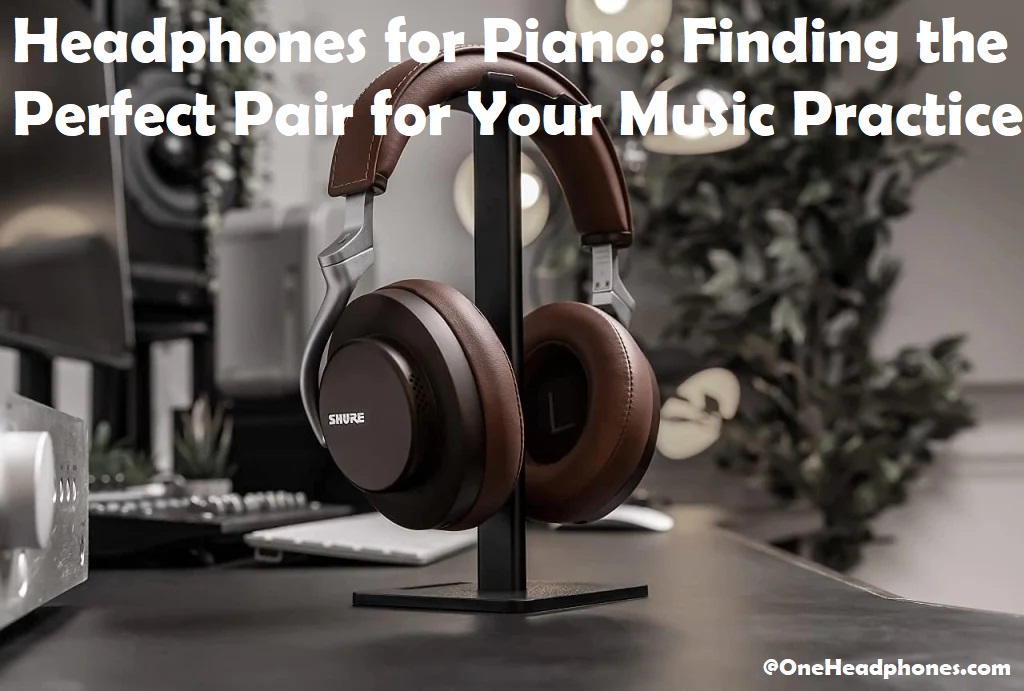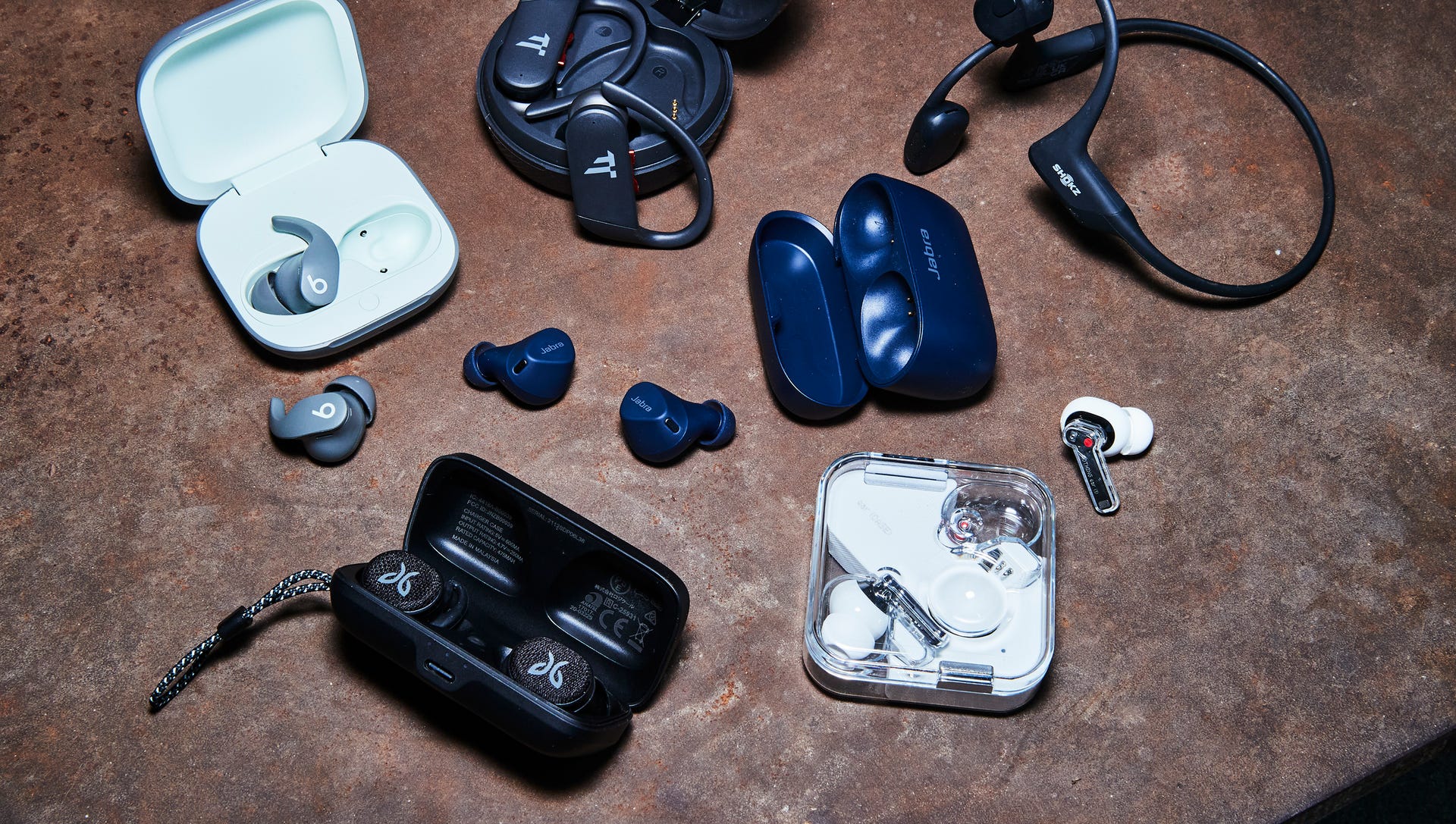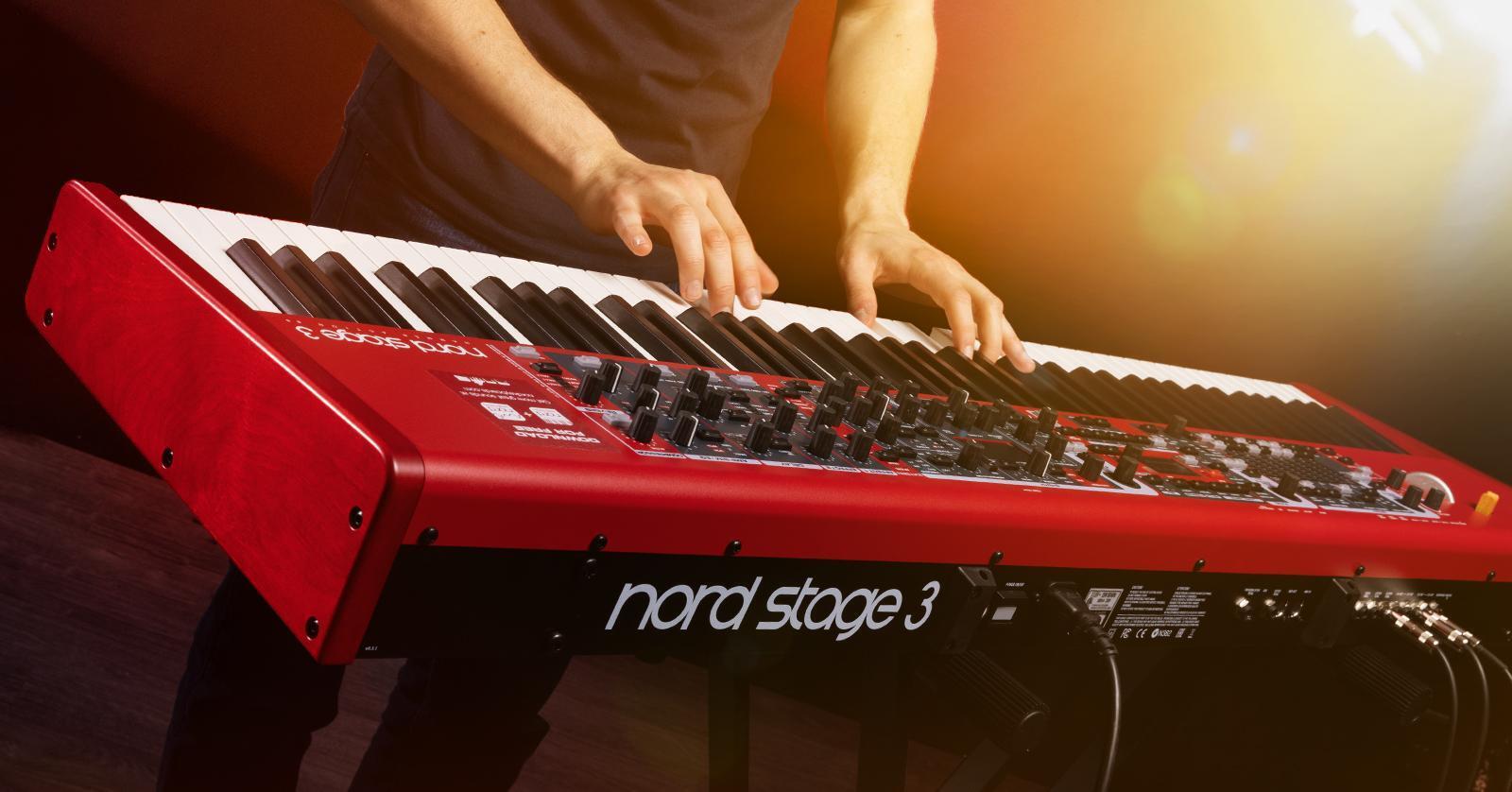Struggling to find the perfect pair of headphones for your piano practice? You’re not alone! With all the choices out there it can be difficult to navigate through and find the ideal pair that meets your needs.
But don’t worry, this guide has everything you need to know about buying headphones for piano practice.
Piano practice is an important activity for any musician, and getting the perfect pair of headphones can be a key component in creating that ideal practice environment. With many brands and models of headphones available in the market, it can be intimidating to find the right product for your needs. This guide will provide a comprehensive overview of the factors to consider when choosing headphones for piano playing, featuring expert advice and user feedback on specific products. We will also discuss in detail how to get started with noise-canceling technology, understanding which audio codecs are best suited for piano practice, and evaluating comfortability with several other aspects of headphone selection. Whether you’re looking for something inexpensive or investing in a premium model, this guide will help you make an informed decision on the optimal pair of headphones perfect for your music playing pursuits.
Importance of headphones in piano practice
Headphones are essential for piano practice for both solo and ensemble practices. They help create a comfortable and focused atmosphere free from external distractions. Wearing the right set ensures that you can deliver your best performance. Professional musicians and instructors often rely on headphones to ensure their focus is providing their most accurate practices with close attention to sound, accuracy, dynamics, and interpretation.
Headphones also provide the perfect sounding environment when it comes to learning and playing music on a piano. They allow the user to isolate external noise by canceling out ambient noise which greatly improves an individual’s ability to accurately listen and interpret sounds delivered through notes or chords coming from the instrument being learned or practiced on. This is especially beneficial when performing in groups or class settings where the user needs to tune out distracting background noises in order to concentrate solely on what they are playing – something headphones can achieve perfectly. Additionally, they are essential tools in recording studios as they allow musicians and engineers to monitor sound without interference.
Headphones also provide comfort while practicing piano; wearing them helps reduce physical stress by allowing pianists of all levels of experience move freely without worrying about having interference from others around them who may be distracted by loud noises coming up during practice sessions. If used properly, headphones can act like a pair of “noise-cancelling curtains” that effectively removes any sound distractions surrounding players so they can focus solely on their performance over the keys. Furthermore, different types of music genres require different types of sound production — modern jazz pieces require dynamics with more treble and highs while classical pieces require lows and bass sounds — making it extremely important for players to have headphones that recreate those exact desired elements which will ultimately result in quality music delivery.
Overview of the guide
This guide focuses on helping piano players find the perfect pair of headphones for their music practice. It covers various topics such as types of headphones, features to consider, what to look for in sound quality, budgeting for headphones and more.
The purpose of this guide is to provide pianists with a comprehensive overview of the various types of headphones that are available, as well as to help them make an informed decision about which one fits their needs best. We’ve researched and tested a wide range of models so that no matter what kind of practice you’re planning on doing – classical, jazz, or playing through your own compositions – you can find a suitable pair.
Factors to Consider When Choosing Headphones for Piano Practice
Before you make your purchase, there are a few factors to take into consideration that will help you decide which type of headphones is the right choice for your music practice.
Comfort: Make sure the comfort level is sufficient for extended practice sessions. Think about size and adjustable features like headbands or ear pieces.
Sound Quality: Look for headphones that provide a solid sound balance between treble and bass and clear accurate frequencies. Pay attention to sound isolation when making your choice.
Price Range: Consider the cost range of headphones available and how much you are willing to spend on them.
Durability: Invest in a pair that is likely to last and hold up against daily use over time.
Other features: Padded earpieces, foldable design, lifespan of batteries (if applicable) and overall quality all should be considered as well before purchasing.
Sound Quality
Sound quality is one of the most important areas to consider when buying headphones for piano. After all, you don’t want your notes to sound distorted or muffled. To ensure that your audio playback is as true to life as possible, look for headphones with large drivers (the speaker components that actually produce the sound) and a wide frequency range. This will ensure that each note sounds crisp and accurate. Additionally, an adequate impedance rating ensures that sounding notes are loud and clear instead of fuzzy and weak. Generally, you’ll want an impedance rating of 40 ohms or above.
Finally, look for conduction materials like neodymium instead of cheap plastic headphones. Neodymium magnets are more compact yet contain far more energy than their plastic counterparts – making them ideal for producing a rich audio experience with minimal bleed-through to the outside world.
Comfort
When it comes to selecting your headphones for piano practice, comfort is key. The perfect pair of headphones should fit over the ears or around the head perfectly, without being too tight or causing any discomfort during long sessions. Look for padded ear cups or adjustable earpads and headbands that can be adjusted according to your size and preferences.
It’s also important to consider noise cancelling headphones if you want to block out the world during long practice sessions. Closed-back headphones are good for this purpose. Additionally, make sure you check cord length, weight and portability when searching for the right pair of headphones for your music practice.
Noise Isolation
The sound isolation of headphones is a crucial attribute for piano practice. While the sound of an acoustic piano may match the volume and intensity of your practice, it’s not the same when you wear headphones. It’s important to consider noise isolation when you purchase headphones for piano practice.
Noise isolation describes how well a headphone prevents external noises from interfering with your music. When you are looking for headphones for piano practice, focus on finding models that offer great noise-isolation capabilities since this is essential to block out all unnecessary noises that may disrupt your concentration or interfere with your ability to hear oneself play clearly.
The type of earbud or headphone cup used in the headset can play a significant role in its noise isolating ability; open back cans will let in more external noise compared to closed back models which better contain and block out external sound waves. Additionally, ear cushions must fit comfortably around one’s ears in order to provide optimal seal and prevent any outside sound from seeping through; be sure to get a pair that is comfortable enough wear for long hours as needed during practice sessions.
Durability
When shopping around for a new pair of headphones for piano, it’s important to look out for models that are built to last. You’ll most likely be using your headphones every day while you practice on the piano and it’s important to make sure they can stand up to the wear and tear that everyday use brings.
Be sure to read customer reviews, if they are available, or inquire at your local music store. Some points of consideration are:
- Types of material used in construction (for example metal or plastic)
- Different parts that are replaceable
- The strength of the cord – A replaceable cable option may be worth looking at as well
- Strength and durability of the ear pads – Softer materials will conform better over time and offer better comfort, but this may impact their longevity. Harder leathers or plastics can offer longer life spans
- Water resistance – Look out for models advertised with water resistant features as this may be useful in humid climates
When you invest in a good quality pair of headphones for piano practice, you want them to last. Do your research before making a purchase so you can rest assured that your investment will pay off in the long run.
Price
Price is a major concern when it comes to purchasing headphones for piano playing. The cost of the headset may vary greatly depending on the quality, features, and construction materials. It is recommended to research amplifiers, transducers, and noise isolation before making your purchase.
Some basic models may start off at $20-$50 in price range, with more expensive models ranging from $100-200 and up. Purchasing online can be tricky as some online retailers will offer enticing deals for cheaply-made models that may not last long or provide optimal sound quality.
If you can find them in stores to try out before buying, then you will have a better sense of how they sound and how comfortable they are before committing your hard-earned money to them.
Tips for Using Headphones for Piano Practice
To make the most of your piano practice sessions and find the perfect headphones for your needs, here are a few tips to keep in mind.
- Opt for Quality: Invest in a pair of quality headphones that won’t break the bank, but will still offer durability and excellent sound. Quality headphones are critical when you’re practicing because they allow you to hear all variations within the tone clearly — which is essential when working on technical and musical nuances.
- Consider Noise Isolation: As a pianist, it’s important to check if the headphones feature noise-canceling or noise-isolating technology; this will help keep outside sounds from interfering with your music practice and help block out potential distraction.
- Look for Comfort: Just as important as sound quality is how comfortable the headphones feel when you wear them for long periods of time. Many people don’t realize that muscle tension increases after wearing tight-fitting or uncomfortable headgear, so make sure to pick out a pair that fits comfortably without inhibiting your performance during practice sessions or while playing live piano gigs!
- Check Battery Life: If you use wireless Bluetooth technology with your headphones, pay close attention to battery life so you won’t have any surprises during gigs or long practice sessions!
Proper Volume Control
When shopping for headphones for your piano practice, bear in mind that it is important that you are able to adjust the volume. It is important that you can control the volume because it helps with both user comfort and in ensuring that you get the ideal listening experience while playing. Having adjustable settings, such as bass and treble settings, ensures that you are able to customize your sound. As a result of this customization, you will be able to achieve a sound quality similar to what would be heard live in various performance venues.
Additionally, avoiding earbuds or other headphones without volume control will significantly reduce the risk of hearing damage due to long-term exposure to excessive levels of noise. Finally, some manufacturers also vary the type of ear cup they use – open-back or closed-back – which affects how audio can pass through them and possibly play an even more important role in controlling the volume you listen at.
Proper Fit and Placement
When looking for the right headphones for piano practice, you’ll want to pay special attention to the fit and placement. Headphones that fit too loosely or too tightly can be uncomfortable and can lead to fatigue in your ears. The best way to make sure you are getting a comfortable fit is to try on a few models before you buy—many music stores will allow customers to test out different styles of headphones before making their purchase.
Proper placement is also important when selecting earbuds or headphones for piano practice. There should be a seal around your whole ear, not just in one spot, so that all of the sound comes through the speaker securely. If possible, try multiple pairs until you find the one that fits best and produces the clearest sound quality. It’s also important to check how they sound when covered with a hat or a visor as most musicians need this additional protection during practice sessions.
Finally, when using over-ear headphones make sure they’re adjusted so that no part of your ear is touching or pressing against any part of the headset—this can reduce clarity and cause fatigue in your ears over time.
Conclusion
When it comes to choosing headphones for piano, there are many factors to consider. Ultimately, the best choice will come down to personal preference by how comfortable the headphones feel on your ears and how well they engage with your choice of tones. From open-back to closed-back headphones and in-ear monitors, selecting a pair of headphones that works with you and your music can make a big difference in elevating your practice routine.
As with any purchase, it’s important to understand both the pros and cons that come along with your ideal pick. With research into various headphone options and experimentation on different models, finding the right pair of headphones for piano playing may not necessarily be easy— but you won’t be disappointed at just how beneficial these pieces of audio equipment can be.
FAQ’s
How to choose headphones for piano?
When choosing headphones for piano, you should look for headphones with a flat frequency response that accurately reproduces the sound of the piano. Closed-back headphones are generally recommended as they provide better isolation and prevent sound leakage, but open-back headphones can also work well. Comfort is also an important factor to consider, especially if you plan to use the headphones for extended periods of time.
Can you practice piano with headphones?
Yes, you can practice piano with headphones. Headphones allow you to hear your playing clearly without disturbing others around you. They also provide a more immersive and detailed sound experience than using the built-in speakers on a keyboard or digital piano.
How do I choose a good pair of headphones?
When choosing a good pair of headphones, you should consider factors such as sound quality, comfort, durability, and price. Look for headphones with a frequency response that matches your listening preferences, and pay attention to features like noise cancellation and wireless connectivity if they are important to you.
What type of headphones would be best for music production?
For music production, it is recommended to use headphones with a flat frequency response that provide accurate and detailed sound reproduction. Closed-back headphones are also commonly used as they provide better isolation and prevent sound leakage. Additionally, it is recommended to choose headphones that are comfortable to wear for extended periods of time.
Do I need special headphones for piano?
You don’t necessarily need special headphones for piano, but it is recommended to choose headphones with a flat frequency response that accurately reproduces the sound of the piano. Closed-back headphones are generally recommended as they provide better isolation and prevent sound leakage, but open-back headphones can also work well.
Why do pianists wear headphones?
Pianists wear headphones to monitor their playing more closely and to hear themselves over other sounds in a noisy environment. It allows them to focus on their playing without being distracted by other sounds, and it can also be used to record their playing for later review or analysis.
Should I learn piano by ear?
Learning piano by ear can be a valuable skill, but it is not necessary to exclusively learn by ear. A combination of ear training and traditional sheet music can be a good approach, as it allows you to develop both your listening and reading skills.
What is the best sound signature for headphones?
The best sound signature for headphones ultimately depends on personal preference, but a neutral or flat sound signature is generally recommended for accurate and balanced sound reproduction. However, some people prefer a sound signature with boosted bass or treble for a more immersive or exciting listening experience.
Can you hear a difference between keyboard and piano?
Yes, there is a difference in sound between a keyboard and a piano. While high-end digital pianos can come close to replicating the sound of an acoustic piano, there are still subtle differences in tone, resonance, and timbre that can be heard by a trained ear.
How do you sound good on a piano?
To sound good on a piano, it is important to focus on proper technique, such as posture, hand position, and finger placement. Additionally, practicing regularly and with intention can help improve your sound and overall playing ability. Finally, choosing the right instrument and using quality equipment, such as a good pair of headphones, can also make a difference in how you sound.
See Also-
- Best bone conduction headphones under $50
- Best bluetooth headphones for outdoor work
- Best beyerdynamic headphones
- Best baby noise cancelling headphones
- Best audio technica headphones

